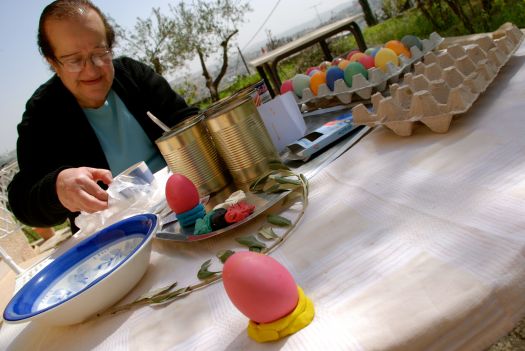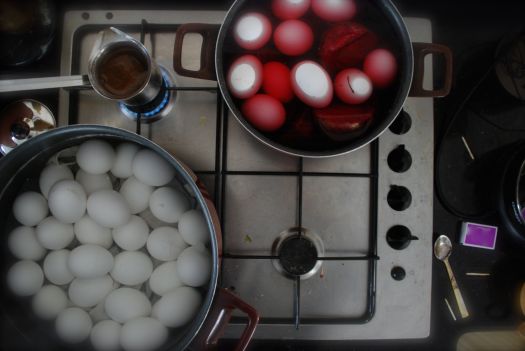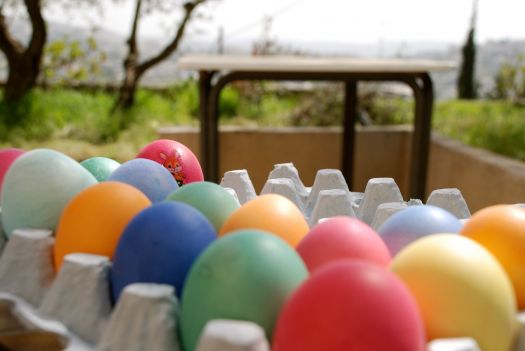
Indeed, Easter celebrations in Palestine in general and in Bethlehem and Jerusalem in particular have a special vigor. From Palm Sunday until Easter Day sounds of church bells, drums, boys and girls scouts performing in the streets, and the chanting of hymns create a magical atmosphere that expresses a sense of spirituality that is deeply rooted in a community that is literally thousands of years old. According to Aida, " Jesus was Palestinian. He is one of us. As the followers of Jesus we are the first Christian community and we have lived for centuries in the same towns and villages where he lived."

Indeed, Palestinian Christians are continuing to be steadfast in the face of 45 years of Israeli military occupation that has caused their presence to dwindle in the land that has been their home since the beginning of Christianity. This is why Easter celebrations in Jerusalem continue to have a significant communal expression that affirms the living presence of a people. According to sociologist and Palestinian Jerusalemite, Dr. Bernard Sabella, "This affirmation of Palestinian Christian presence highlights the fact that in spite of the dwindling numbers of Palestinian Christians and of the dire political situation, we Palestinian Christians remain part of our society and of the Palestinian landscape and adds variety, steadfastness and hope to



